Over the years, the successive governments skipped extending the lease of innumerable land parcels as a result of which hundreds of properties in hospitality and general trade were operating on expired lease documents. Post-2019, the court asked the administration to frame rules. Made public last week, the new land lease rules have snowballed into a major controversy as the political class presumes its implementation can alter the stakeholding in key businesses, reports Masood Hussain
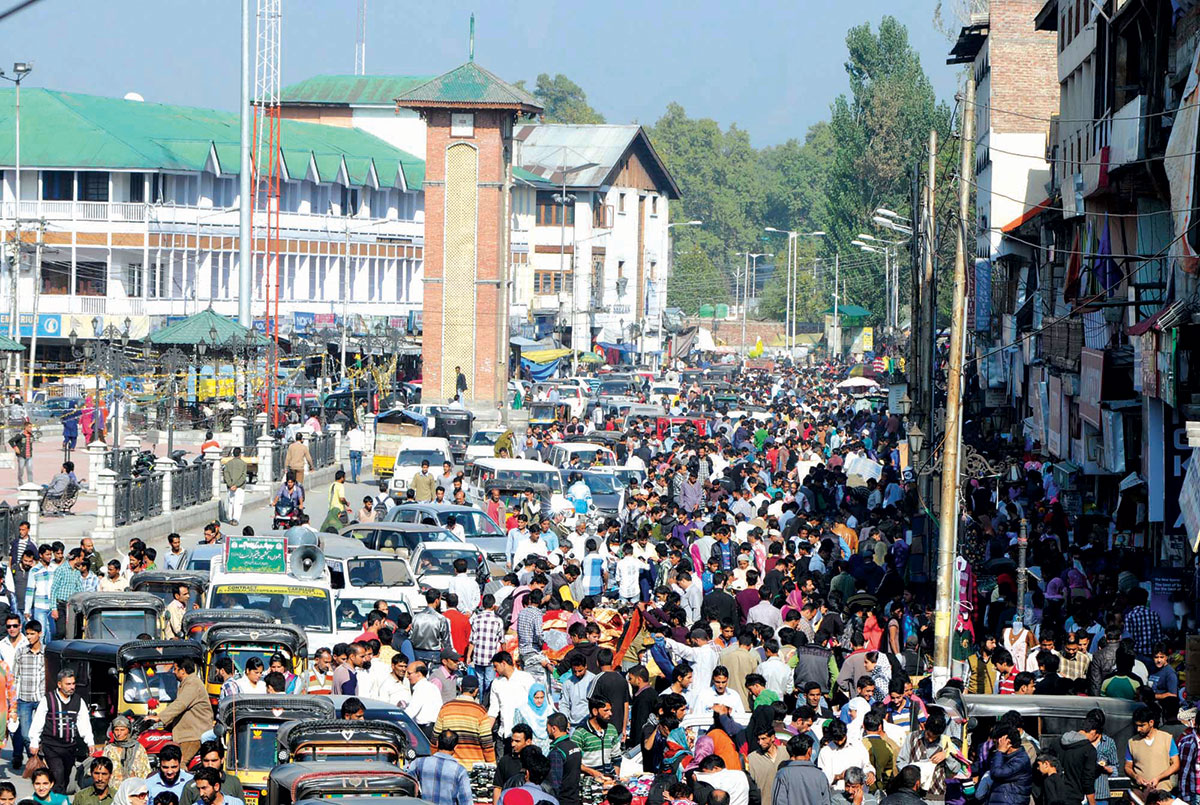
“I agree that the leases have expired and need to be renewed, but those who have the leases should get a chance to renew,” former Chief Minister, Omar Abdullah, recently said in response to the LG Manoj Sinha administration making public the new rules for the land lease under the new land laws. “Fix the rate and tell them to submit the money.”
Ideally, this should have been the driving wisdom for action for the five Chief Ministers, including Omar Abdullah who ruled Jammu and Kashmir in the post-1990 era. “Most of the leases of Gulmarg properties had expired by 1994,” one hotelier said. “When we made the pleas, it was a dilly-dallying situation for one or the other reason.”
Gulmarg lacks any private land. Whatever commercial activity takes place in the so-called winter wonderland, it all happens within the lands leased by successive governments to the local entrepreneurs. There is barely a property that has not its lease documents expired. After failing to get it addressed in any of the governments till the fall of the BJPDP government in 2018 summer, some of them went to court. While the court maintained the status quo and observed that the lapsed lease does not make their operations illegal, the administration was directed to make lease rules as quickly as possible.
Lease Rules
Last week, when Manoj Sinha administration issued the new lease rules, hell broke loose. The rules indicated that the post-2019 administration is attempting to rediscover the wheel. Excepting the subsisting/expired leases for residential purposes, all other outgoing lessees were directed to immediately hand over the possession of the land to the Government. If they fail in handing over the possession, they shall be evicted.
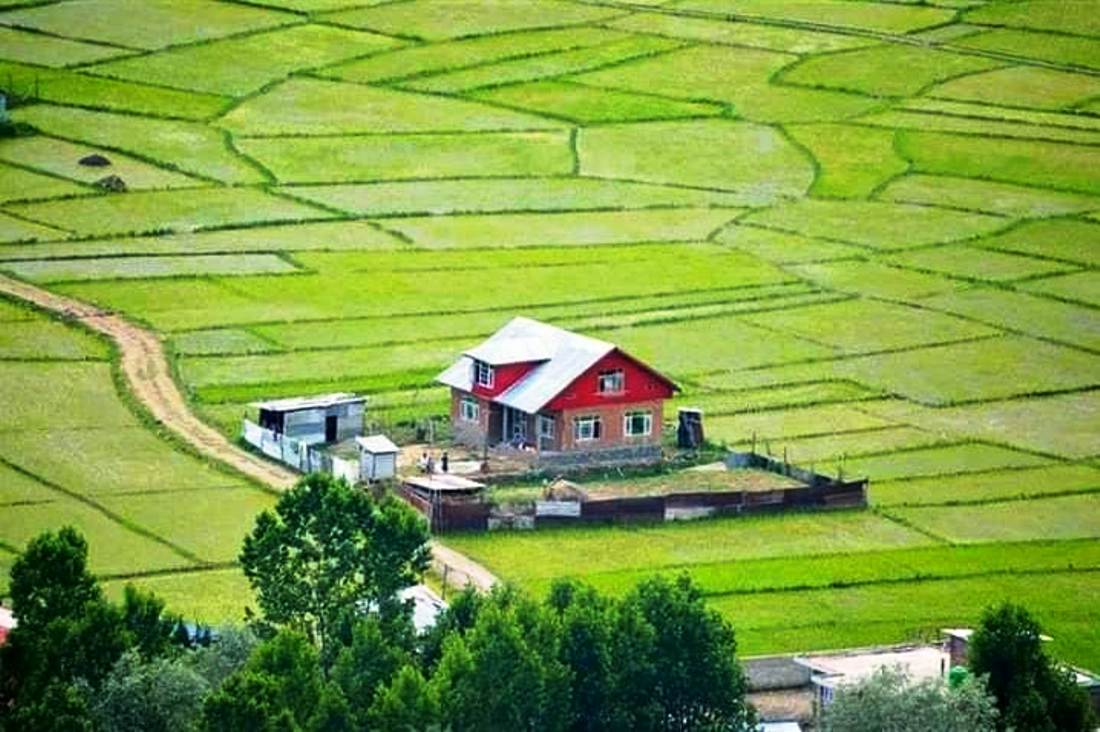
“All leases (except the subsisting expired residential leases) including lease granted under the Jammu and Kashmir Land Grants Rules 1960, Notified Area (All Development Authorities set in Tourism Sector) Land Grants Rules, 2007 and leases expired or determined before the coming into force of these rules or issued under these rules shall not be renewed and shall stand determined,” the Jammu & Kashmir Land Grant Rules-2022 point out. If the outgoing lessees have not violated the terms of the agreement of the lease, they will be paid for any improvement including structure construction they might have made and the assessments of the value would be made by a committee.
The rules have explained the mechanism of how the designated land patches will be auctioned online and how new leases will be carried out and what would be the land use. It has also detailed the processes including the payments that will go into implementing the land lease agreements. A 10-member empowered committee led by Financial Commissioner Revenue with members from different departments would identify and designate land and the purpose for the grant of the lease. The government has retained a seat on the committee as well. Unlike the past, the lease will be for 40 years.
Offering details of the land use in case of lease, the rules suggested that the land would be leased for activities within education, healthcare, agriculture and allied activities, tourism, skill development, development of traditional art, craft, culture and languages, hydro-electric projects, development of stadiums, playgrounds, gymnasiums or other recreational purposes, petrol pumps, gas pipelines, LPG bottling centres, fuel reservoir, next generation clean fuel sources CNG/CBG/ LNG/hydrogen fuel/ low Carbon fuel/any other clean fuel source with related activities/services/ utilities/infrastructures as per established norms/industry best practices, self-employment or for housing purposes of ex-servicemen, war widows, families of deprivation categories (as per latest socio-economic census), specially-abled Persons (Divyang), families of martyr (one who has sacrificed his life in the line of duty for the sake of nation), migrant workers/ building and other construction workers, rehabilitation of sufferers of natural disasters/ calamities, specific infrastructure projects for the development of infrastructure, industries, agriculture, tourism and employment generation, laying of water mains, pipes, underground cables, cause ways, underground bridges, cables, towers, poles, stay rods, stay rails for overhead cable and likewise. Apart from these 13 activities, the rules suggest that the land can also be used for “any other purpose” in the interest of Jammu and Kashmir.
The Second Intervention
The new rules have fundamentally shifted the land lease management system in Jammu and Kashmir. “There were two ways of giving a patch of land on lease,” M Ashraf Mir, Jammu and Kashmir’s former law secretary said. “A person would identify a piece of land, and apply for a lease with a clear idea of what he or she intended to do. The request would be debated and commented upon by the line department and finally land in the cabinet, which would accept or reject it.”
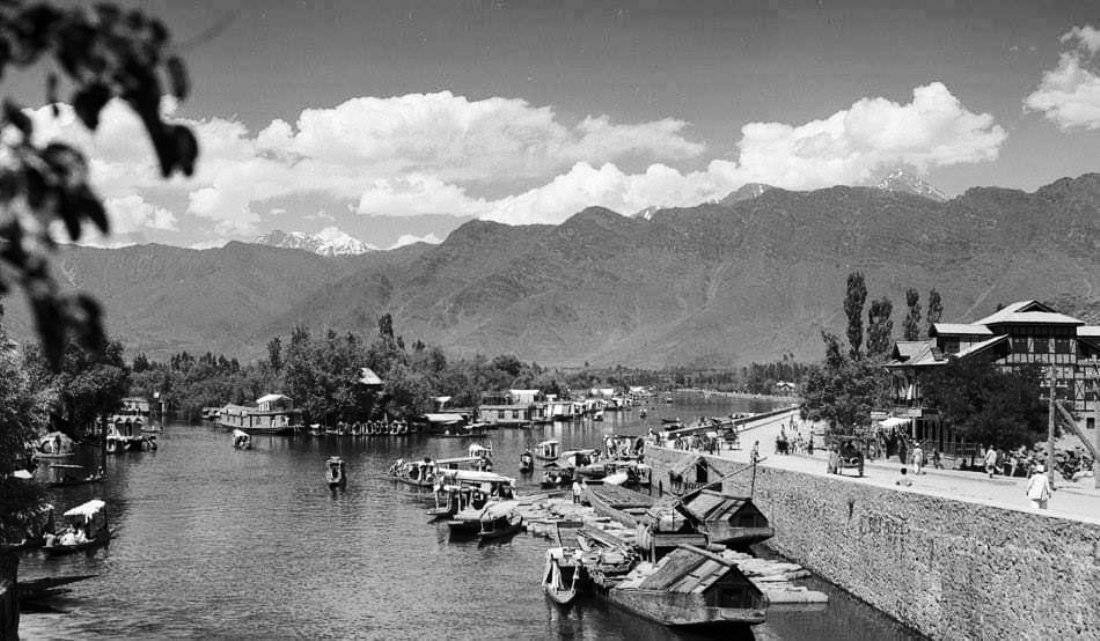
In most cases, however, the government’s departments like the Tourism Development Authorities would designate spots and ask interested people to apply to create tourism-related infrastructure. It would also follow the same process and these patches would be given to the interested people on the basis of ground premium and rent.
However, what was fundamental in all these agreements was that the land could not be given even on lease to a person who was not a permanent resident of erstwhile Jammu and Kashmir state. It owed its genesis to the pre-1947 era law, the Jammu and Kashmir Alienation of the Land Act, 1938, which forbade the transfer of land to a non-native. The act was deleted on October 26, 2020, when the new land laws were promulgated under the Jammu and Kashmir Reorganisation Act 2019. As many as 12 state laws were repealed, including the historic land reform laws, and amending 14 others, some of which dealt with the sale and purchase of land in Jammu and Kashmir. Protection of land was enshrined in Article 35A which was repealed on August 5, 2019.
“Under the Land Grants Act 1960, the provision of leasing land to non-local investors was incorporated but there was no provision of permanent transfer,” Mir said. “Even the Transfer of Property Act (TPA) was also preventing any transfer to a non-state subject and the last time the laws were changed, the permanent resident was replaced by a domicile. One of TPAs key sections was deleted.”
The officer said the designated patches of land used to be leased out for forty years with an extension of another forty and 10 years. “In normal circumstances, the expired lease would get extended unless there were grave issues involved,” Mir said. When asked why the lapsed leases were not extended and why these cases went to the court, the officer said, in most of the cases the lease-holders had encroached upon additional land in their surroundings and they were asked either to undo it or pay for it. “That was the key factor why most of the lands could not get an extension on the lease.”
Impact
The new rules will have a massive impact across businesses. The residential structures have been exempted. Experts believe that the Evacuee’s Property lands are also exempted because these are owned lands, even though the owners do not live here and the government is the Custodian.
The rules can change the stake-holding in the entire Gulmarg, parts of Srinagar around Boulevard, parts of Pahalgam, Patnitop and many other places, mostly involving the hospitality sector.
“We have 59 properties in Gulmarg,” Mushtaq Chaya, a leading hotelier said. “All 58 have the lease lapsed and one still has a lease for 18 months.” He said they have nearly one lakh people linked directly or indirectly to these properties. “We were given these lands in 1978 for 40 years with an extension provision for 50 more years,” Chaya said. “We were in the midst of the investment and far away from a break-even that militancy started and for the last 32 years there was no work because there were no tourists. It was an idle investment. We have barely worked for a season and now we are being told – the time is up.”
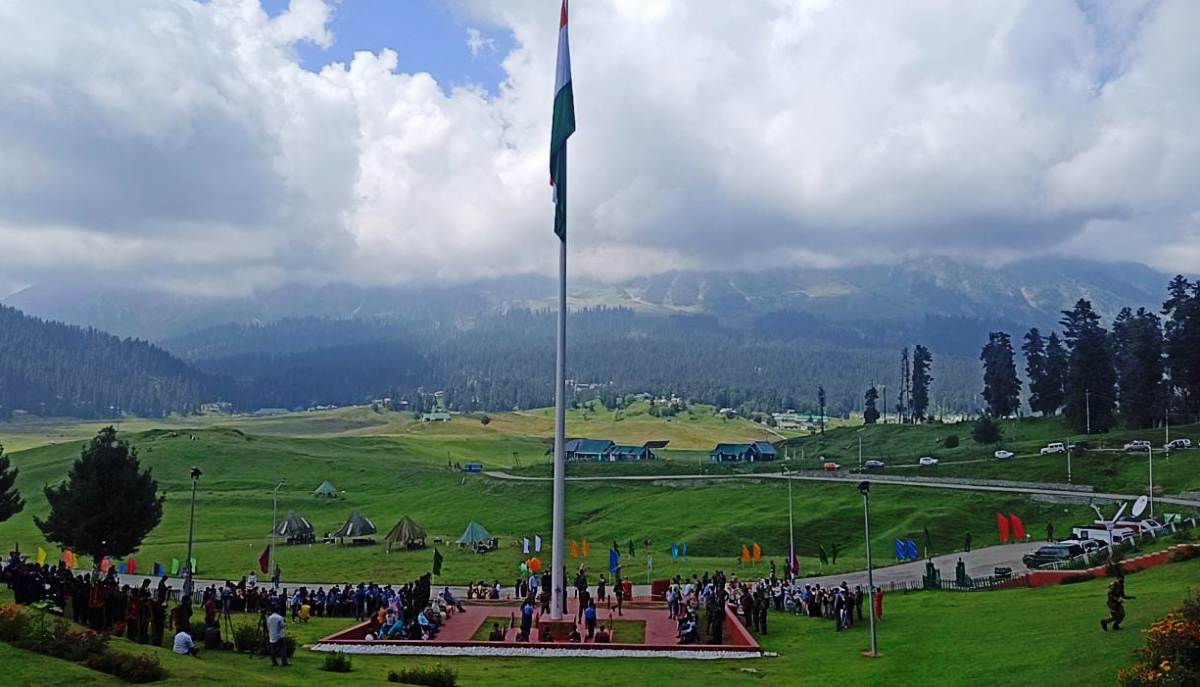
On the trade front, almost half of Srinagar will be impacted. “Most of Lal Chowk operates from leased land because it all belongs to the government,” Mohammad Yasin Khan, one of the trade leaders said. “The system was traditional; the government leased the land and the lessee constructed a building and gave the shops on rent. There are shops that operate for almost 70 to eighty years like this.” These shops, he said, are not only landmarks but have acquired their identity as nearly three generations have worked in them.
Another businessman said that if the new rules are implemented, almost forty per cent of the market between Hari Singh High Street and Boulevard will witness a shift in the stake holding.
NC leader Ajay Sadhotra said Jammu will take a huge hit. “A lot of shops and the entire manufacturing sector operate from lands leased by the government,” Sadhotra said. “There are a lot of residential structures that operate from leased lands. If you have Rajbagh and Jawahar Nagar in Srinagar, we have Gandhi Nagar and many other posh localities in Jammu.”
Education
Various educational institutions also operate from lands leased by the state. G N Var, who heads the private school association, said nearly 650 schools can have an impact. Almost all of Srinagar’s major Christian Missionary Schools also operate from leased lands. Accepting the immense contribution that these schools have made in educating Kashmir at the peak of despotic rule, successive governments have traditionally extended the lease on the land almost on nominal terms.
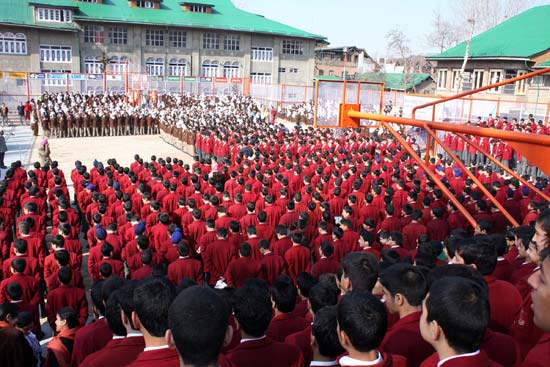
In response to an RTI, the government in 2014 revealed that around 84 kanals, 11 marlas and 9 sq ft of prime land in Lal Chowk were with the Tyndale Biscoe and Mallinson School at Sheikh Bagh. Similarly, Burn Hall School, Sonawar was operating from 32 kanals, 8 marlas and 75 sq ft of land at an annual rent of Rs 8105. Presentation Convent School, Raj Bagh was operating from 95 kanals, 4 marlas and 57 sq ft on a yearly rent of Rs 12000.
In all four schools, the lease had expired by or before 2000. Some of them had stopped even paying the rent. Biscoe, for instance, had Rs 1.81 crore of rent unpaid by 2012. Interestingly, however, the twin schools – Convent and Burn Hall managed to renew their lease on May 10, 2019, and the rent witnessed a 150 per cent hike.
However, the use of the education sector is interesting. On April 15, 2022, the Higher Education department issued an order asking private schools to submit, apart from a lot of other documents, the details about the land they operate from. They were supposed to have the right to use the land for ten years before renewing their registration. Implementation of the order would have led to the closure of more than 400 schools. In certain areas, the education department had actually moved to lock various schools operating on state lands. However, the Private Schools Association went to court against the order and it was stayed.
By the year’s end now, however, the government has put education at the top priority area as far as utilisation of the leased land goes.
Fierce Reaction
Given the fact that the rules are expected to impact a huge population across diverse sectors of economic activity, the reactions were fierce.
“These land laws are draconian and inhuman,” Altaf Bukhari of the Jammu and Kashmir Apni Party said. “Nowhere in the world are people removed from possession.”
Bukhari said these rules “will not be allowed to be implemented”. If the government did not extend their lease, it is not the lease-holders’ mistake. “These laws cannot be implemented; it cannot stand the scrutiny of law. It is totally inhuman … The Apni Party will not allow these draconian laws to be implemented.”
Peoples Conference leader, Sajad Lone sounded angrier. “Lease rules across the world and in India are fairly simple and on similar lines,” Sajad said. “But these (new land grant rules) are different and not without motives.” Sajad said the land policy may “start the dark chapter of now blatantly othering the Kashmiris”.
Two former Chief Ministers were equally furious over the new rules. Both insist that the rules are aimed at snatching the land from locals and giving it to non-locals.
“I do not know about UP, but as per the laws passed here by BJP, the land is being snatched from the locals leasing it. The land held by locals is being snatched to be given to outsiders,” Mehbooba said. Invoking the revolutionary land-to-tiller law that Sheikh Mohammad Abdullah promulgated in 1947-48, Mufti said it is being reversed now. Apart from Jammu and Kashmir, Kerala, West Bengal and Tripura also adopted the land-to-tiller redistribution. “Those who have got land under lease, farmers, hoteliers and business people, are being told to vacate the land and the authorities would like to do whatever they want,” she said, insisting, it was “the biggest fraud and deception against people” they call ‘our citizens’ and ‘integral part’.
Invoking these rules, she drew parallels between Kashmir and Gaza. “The whole agenda of removing Article 370 was to take away our resources and land. It’s on the lines of what Israel does in Gaza. It’s a direct attack on our economy and aimed to settle outsiders. It’s obvious from handing over lease land to families of servicemen.”
“If you want to bring new people from outside, sure, do it but make new projects for them,” responded Omar. “Identify new areas; there are so many areas, which can be brought to the tourist map. There are so many beautiful areas which are undeveloped, hand over those to them; build roads, hotels and ski resorts.” He insists: “The first right belongs to those who were already settled here.”
LG Response
The official response to the decision-making has been that the new rules will mark an end to the influential who were having the cake and eating it too. The leaseholders are being seen as backers of Kashmir’s traditional political elite.
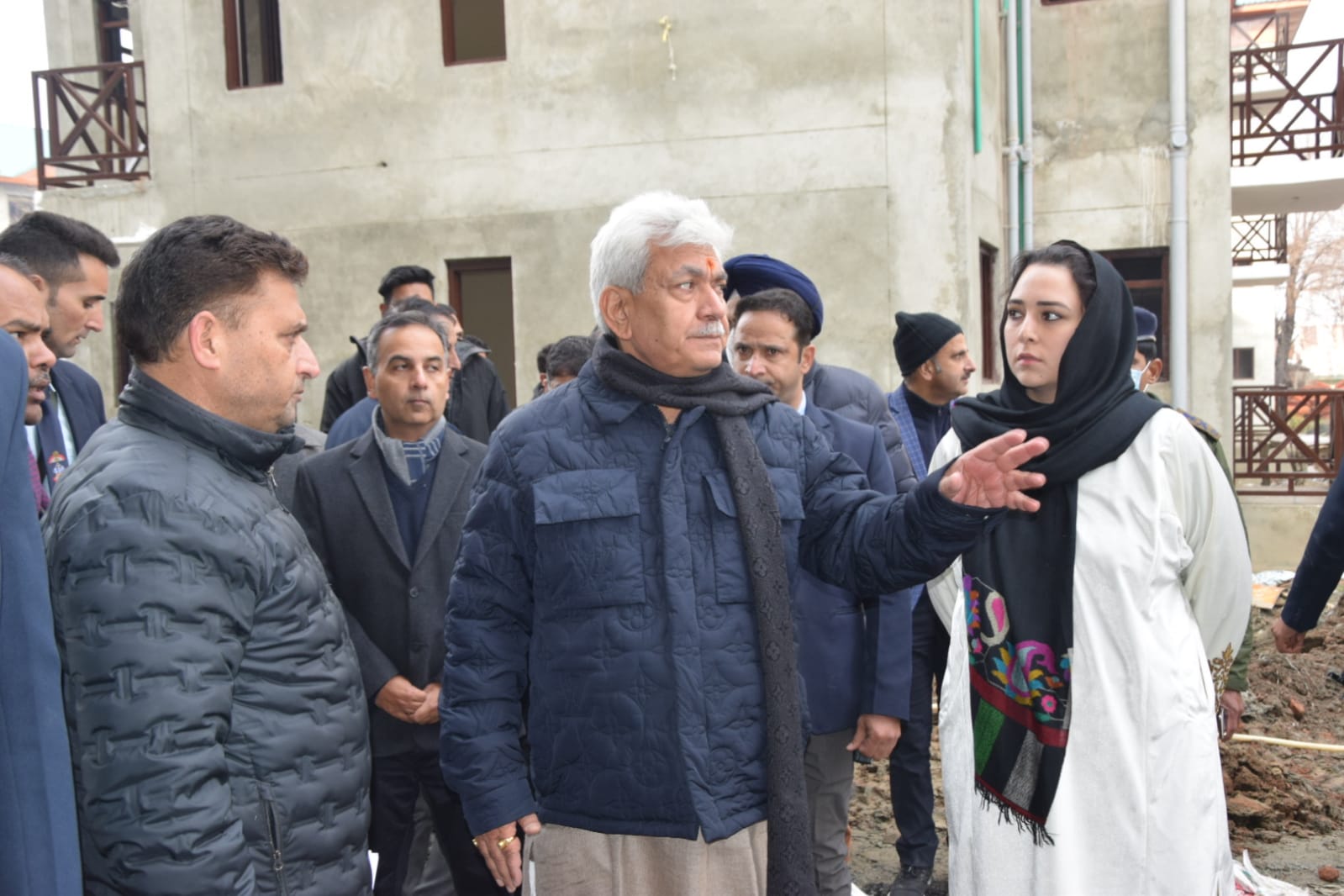
Personally, the Jammu and Kashmir Lt Governor Manoj Sinha said that the necessary changes were made in land laws to benefit the common man. “The (old) land laws were very regressive and not framed with the interests of the people in mind,” Sinha told reporters on the sidelines of an official event. “The changes which are necessary for benefiting the common man are being made.” He said there was a lot of litigation involving the land and almost 40 to 45 per cent of the litigation involved land records. “People will live in peace after the digitization of land records completes.”
Land, it may be recalled here, has remained the key focus after the August 5, 2019 decision-making that saw the reading down of Article 35A and Article 370 and subsequently bifurcating Jammu and Kashmir into two federally governed Union Territories. In the first go, the controversial Roshni law was undone. Subsequently, various line departments started investigating the issues pertaining to the lands in their responsibility.
In July 2022, the Anti-Corruption Bureau (ACB) reportedly (in note 45/2022to GAD) suggested a review of all the cases of allotment of evacuee property in Jammu and Kashmir for which auction was not conducted and the property was allotted on a nomination basis.
Apart from ongoing and expired leases of the Evacuee Property, the note suggested that allotment of all prime properties of tourism in Gulmarg, Pahalgam and other places on the basis of the open auction will fetch the government far higher rent when put to open auction.
Even the Jammu and Kashmir Wakf Board has also indicated that it will end all earlier lease deeds on its commercial properties and go for a fresh auction. It has already announced an increase in the rentals that led its property-holders in Jammu to come on the roads in protest. Darakhshan Andrabi, its Chairperson said as early as August 2022, that the Board intends to initiate legal proceedings in the case of Waqf land leased out on political considerations to the influential people.
Not New
The lease issue has not come around all of a sudden. It was a live one for all these years. At one point in time, the leaseholders in Gulmarg were about to be stopped by the GDA from operating the properties. The administration was implementing an October 2021 court direction asking for “immediate retrieval of public land which is under the unauthorized occupation and encroachment in Gulmarg”.
A hue and cry led the government to intervene and maintain the status quo for almost one last year, apparently not to disrupt the tourist season. They were told that they can carry on as “caretakers” of the properties.
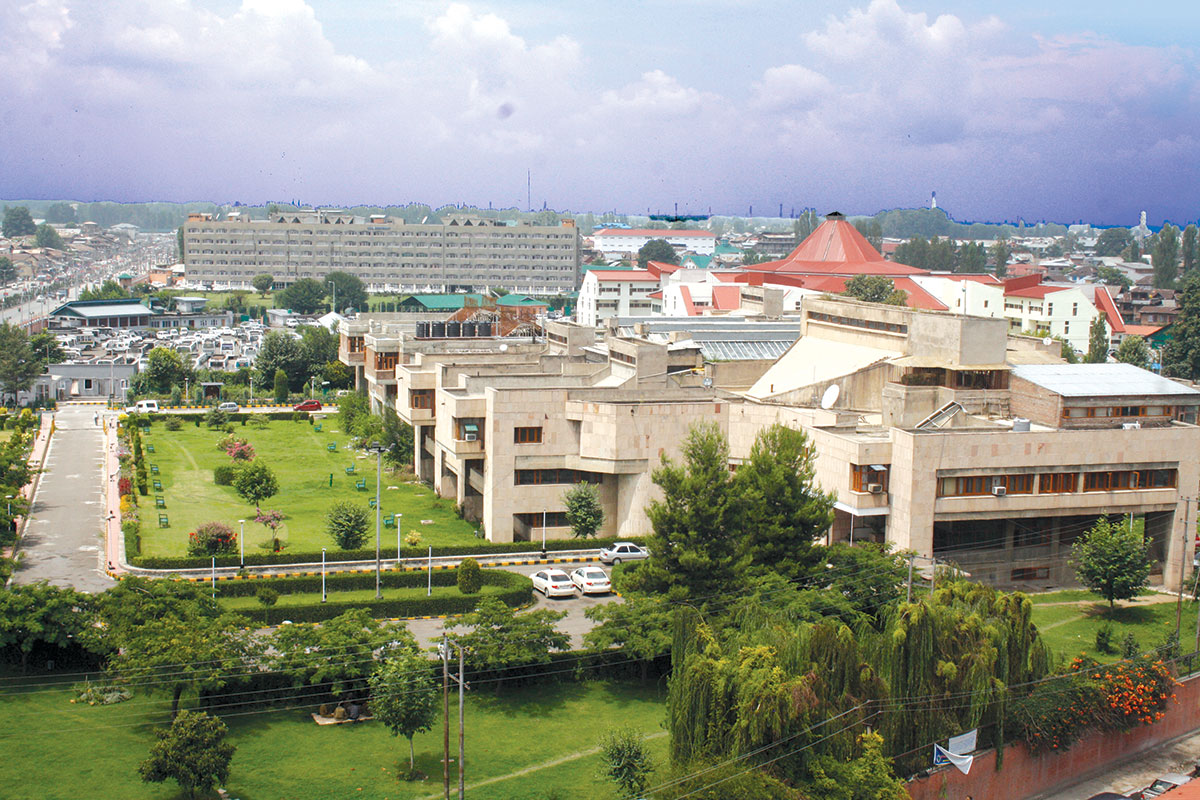
“We expect that such a decision is taken by the government most expeditiously, preferably within three months,” a Division Bench comprising the then Chief Justice Pankaj Mithal and Justice Mohammad Akram Choudhary observed as early as December 2021. The hoteliers had agitated before the court that the extension to the lease used to be granted ‘as a matter of course’ until and unless there was a breach or violation of the terms and conditions of the lease. In certain cases, they were prevented from carrying out repairs to the properties.
This led Mushtaq Chaya to fly a delegation to Prime Minister Narendra Modi on April 6, 2022.
“We are trying to have a meeting with LG Sahib,” Chaya said. “We will also apprise the top leadership of the country.”
Chaya said if the idea is to put the land to the same use, what is the logic for disturbing the present lessee? “Rent has to be increased and if there is a premium to be paid, it is also all right,” Chaya said. “But these people have invested on the basis of a 90-year lease of which 40 have expired. Where will they go?”
Already there was one meeting of part of the trade with the Chief Secretary on this issue. “It was not a breakthrough,” one of the participants said. “The Chief Secretary told the delegation that the people whose lease has expired will have to hand over the property and then they have the right to apply in the auction. If they get it, they get it.”
What Next?
The issue is a major one because it has a massive impact across all business sectors. Barring the BJP, no political party is supportive of the new rules, not even the parties being seen as BJP’s B-team.
How will businesses negotiate with the systems and how the politics will transact in the coming days – apparently election year – needs to be seen.















